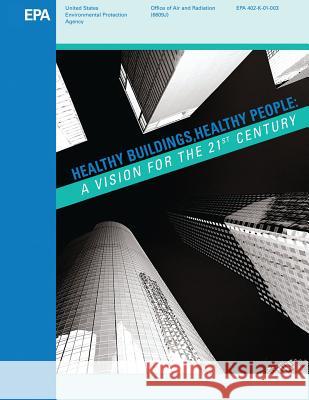Healthy Buildings, Healthy People: A Vision for the 21st Century » książka
Healthy Buildings, Healthy People: A Vision for the 21st Century
ISBN-13: 9781548592493 / Angielski / Miękka / 2017 / 108 str.
The U.S. Environmental Protection Agency (EPA) is pleased to issue the Healthy Buildings, Healthy People (HBHP) report, a vision for indoor environmental quality in the 21st Century. The importance of the indoor environment to human health has been highlighted in numerous environmental risk reports, including the 1997 report of the Presidential and Congressional Commission on Risk Assessment and Risk Management. On average, we spend about 90 percent of our time indoors, where pollutant levels are often higher than those outside. Indoor pollution is estimated to cause thousands of cancer deaths and hundreds of thousands of respiratory health problems each year. In addition, hundreds of thousands of children have experienced elevated blood lead levels resulting from their exposure to indoor pollutants. The HBHP report is the outcome of a cross-Agency effort to define a strategic vision and potential actions for improving the quality of our indoor environment and was jointly led by the Office of Air and Radiation (OAR) and the Office of Prevention, Pesticides, and Toxic Substances (OPPTS) with substantial involvement from the Office of Research and Development (ORD). The report challenges all of us to work together to improve the quality of our environment. It can also serve as the basis for discussion and education among professionals in public policy, health, building sciences, product manufacturing, and environmental research. Already, EPA has undertaken program initiatives focusing on childhood asthma characterizing the effect of building and consumer products on the indoor environment, increasing the demand for cleaner indoor products for use in schools, creating standards of care for existing buildings, and designing guidance for new schools. We challenge others, including government, tribes, the health community, academia, non-profit organizations, and industry, to embrace the HBHP goals and work together to invest in the actions outlined in the report. In this way we can begin to make progress towards realizing the vision of HBHP.
Zawartość książki może nie spełniać oczekiwań – reklamacje nie obejmują treści, która mogła nie być redakcyjnie ani merytorycznie opracowana.











